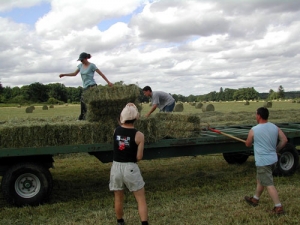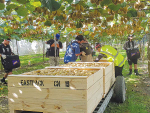Whether it be feeding the calves after school or docking lambs, working on the family farm is a quintessential rural New Zealand right of passage for many kiwi kids.
In addition to helping the family, it is a great way to learn practical skills for a future career in the industry, while saving a bit of pocket money.
For farming parents it is easy to see the children as a ready source of labour for love, however it is not always simple says Crowe Horwath agri tax expert Tony Marshall, himself a former family farm child employee.
“We may be dealing with family, but there are certain rules that need to be followed when it comes to paying your children for work undertaken on the family farm”.
“In the first instance PAYE must be deducted from any wages paid to children, just like any other employee,” says Marshall.
Another key point is around ensuring the wages paid are reasonable for the work undertaken. Marshall says this means that the amount paid cannot be an arbitrary sum, without due consideration of the work being undertaken.
Parents need to be aware that the IRD can look into payments in this regard. “They have the ability to deem any payment made as ‘excessive’ and reallocate the wages paid for tax purposes,” says Marshall.
Marshall notes that when considering whether an amount paid is excessive, the IRD will look at the nature of the services performed, the knowledge and skill required to carry out the services, the amount that an independent employer would pay for similar services, and the amount that would be paid to an arms-length employee undertaking similar duties.
“Basically you can’t simply pay children a wage from the farm account to obtain a tax advantage from income splitting or to support them through tertiary education when they are not actually performing work on the farm,” he says.
“If farmers want to financially support their tertiary student children living away from home, they can consider making distributions from their trusts. This can have the same tax effect, however, they need to be mindful about beneficiary rights.”
Marshall also points to a couple of other aspects that need to be taken into consideration, “It is unrealistic to claim a deduction for payments made to very young children because they are unlikely to be able to perform any useful work,” he says.
“Nor will jobs that could reasonably be considered a normal household chore be considered deductible.”
The tax rules are not the only thing you will need to consider, says Marshall.
“Farming parents also need to be mindful of their obligations under the Employment Relations Act and Health and Safety legislation. These obligations include the provision of a written employment agreement, the payment of the minimum wage (if over 16), holiday pay and various record keeping requirements.”
Marshall concludes, “While they may be your children, once they are being paid for work on the family farm they must be treated as an employee.”



















